Films with theme "Poésie", sorted by revenue
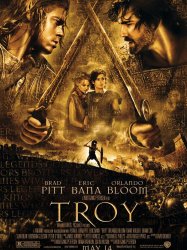
Troy (2004)
, 2h43Directed by Wolfgang Petersen
Origin USA
Genres Drama, War, Action, Adventure, Historical, Peplum
Themes Films based on mythology, Poésie, Films based on Greco-Roman mythology, Political films, Adaptation d'un poème, Dans la Grèce mythologique, Films based on Greco-Roman mythology
Actors Brad Pitt, Eric Bana, Orlando Bloom, Diane Kruger, Peter O'Toole, Rose Byrne
The opening scene shows the troops of Agamemnon of Mycenae ready to fight against the troops of Triopas of Thessaly. Afterwards, Prince Hector of Troy and his younger brother Paris negotiate a peace treaty with Menelaus, king of Sparta, and celebrate the end of a long and bloody war. Paris, however, is having a secret love affair with Menelaus' wife, Queen Helen, and smuggles her aboard their homebound vessel, much to Hector's fury, as this could lead to war between Troy and Greece. Upon learning of this, Menelaus meets with his elder brother, King Agamemnon of Greece, and asks his help in taking Troy. Agamemnon, who has wanted to conquer Troy for a long time, agrees, since it will give him control of the Aegean Sea. On King Nestor's advice, Agamemnon has Odysseus, King of Ithaca, persuade Achilles to join them. Achilles, who strongly dislikes Agamemnon and his ways, initially refuses, but eventually decides to go after his mother, Thetis, tells him that though he will die, he will be forever remembered.
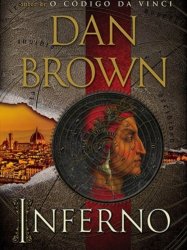
Inferno (2016)
, 2h1Directed by Ron Howard
Origin USA
Genres Drama, Science fiction, Thriller, Action, Crime
Themes Poésie, Films about religion, Adaptation d'un poème
Actors Tom Hanks, Felicity Jones, Omar Sy, Ben Foster, Irrfan Khan, Sidse Babett Knudsen
Robert Langdon awakens in a hospital room in Florence, Italy, with no memory of what has occurred for the last few days. He then teams up with the doctor Sienna Brooks, to help him recover.

Beowulf (2007)
, 1h55Directed by Robert Zemeckis
Origin USA
Genres Fantastic, Fantasy, Action, Adventure, Animation
Themes Films about magic and magicians, Films based on mythology, Poésie, Films set in the Viking Age, Films based on Norse mythology, Adaptation d'un poème
Actors Ray Winstone, Crispin Glover, Angelina Jolie, Anthony Hopkins, Robin Wright, John Malkovich
Beowulf (Ray Winstone) is a legendary Geatish warrior who travels to Denmark with his band of soldiers, including his best friend, Wiglaf (Brendan Gleeson). They travel in response to the call of King Hrothgar (Anthony Hopkins), who needs a hero to slay a monster called Grendel (Crispin Glover), a hideously disfigured troll-like creature with superhuman strength. Grendel attacks Hrothgar's mead hall, Heorot, whenever the Danes hold a celebration there, and Hrothgar was forced to close the hall. Upon arriving, Beowulf immediately becomes attracted to Hrothgar's wife, Queen Wealtheow (Robin Wright Penn), who does not love her husband and reciprocates Beowulf's interest.

Padmaavat (2018)
, 2h44Directed by Sanjay Leela Bhansali
Origin Inde
Genres Drama, War, Historical, Musical, Romance
Themes Poésie, Politique, Political films, Adaptation d'un poème, Films about royalty
Actors Deepika Padukone, Shahid Kapoor, Ranveer Singh, Aditi Rao Hydari, Raza Murad, Ayaz Khan
Padmavati, reine de Mewar au début du 14ème siècle, était connue bien sûr pour sa beauté, mais surtout pour son courage face à l’envahisseur qui assiégeait son royaume.

The Postman (1994)
, 1h48Directed by Michael Radford, Massimo Troisi
Origin Italie
Genres Drama, Comedy, Comedy-drama, Romance
Themes Films about writers, Poésie, Films about language and translation
Actors Philippe Noiret, Massimo Troisi, Maria Grazia Cucinotta, Renato Scarpa, Anna Bonaiuto, Anna Bonaiuto
Set in the year 1950, Pablo Neruda, the famous Chilean poet, is exiled to a small island in Italy for political reasons. His wife accompanies him. On the island, local Mario Ruoppolo is dissatisfied with being a fisherman like his father. Mario looks for other work and is hired as a temporary postman with Neruda as his only customer. He uses his bicycle to hand deliver Neruda's mail (the island has no cars). Though poorly educated, the postman eventually befriends Neruda and becomes further influenced by Neruda's political views and poetry.

Poetic Justice (1993)
, 1h49Directed by John Singleton
Origin USA
Genres Drama, Comedy-drama, Romance
Themes Films about music and musicians, Poésie, Hip hop films, Gangster films
Actors Janet Jackson, Tupac Shakur, Regina King, Joe Torry, Tyra Ferrell, Roger Guenveur Smith
Justice (Janet Jackson) is a young woman living in South Central, Los Angeles. She was named Justice by her late mother, who gave birth to her while attending law school. After the shooting death of her boyfriend Markell (Q-Tip), Justice falls into a deep depression. She spends the majority of her time in the house she inherited from her grandmother, with her cat White Boy, only going out to her job at a local hair salon. Justice is a talented poet, she reads many of her poems throughout the course of the film, both to other characters and in voice over.
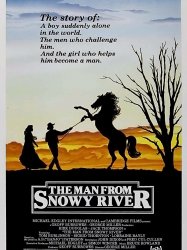
The Man from Snowy River (1982)
, 1h42Directed by George Trumbull Miller
Origin Australie
Genres Drama, Action, Adventure, Romance, Western
Themes Films about animals, Seafaring films, Poésie, Transport films, Films about horses, Adaptation d'un poème
Actors Tom Burlinson, Sigrid Thornton, Kirk Douglas, Jack Thompson, Terence Donovan, Tommy Dysart
When Jim Craig and his father Henry are discussing their finances, a herd of wild horses called the Brumby Mob passes by, and Henry wants to shoot the black stallion leader—but Jim convinces his father to capture and sell them. The next morning the mob reappears and Henry is accidentally killed. Before Jim can inherit the station, a group of mountain men tell him that he must first earn the right – and to do so he must go to the lowlands and work.

Bright Star (2009)
, 2hDirected by Jane Campion
Origin United-kingdom
Genres Drama, Biography, Romance
Themes Films about writers, Poésie
Actors Ben Whishaw, Abbie Cornish, Paul Schneider, Kerry Fox, Thomas Brodie-Sangster, Edie Martin
In 1818 Hampstead, the fashionable Fanny Brawne (Abbie Cornish) is introduced to poet John Keats (Ben Whishaw) through the Dilke family. The Dilkes occupy one half of a double house, with Charles Brown (Paul Schneider)—Keats' friend, roommate, and associate in writing—occupying the other side.
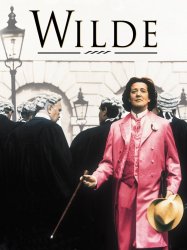
Wilde (1997)
, 1h58Directed by Brian Gilbert
Origin United-kingdom
Genres Drama, Biography, Historical
Themes Films about writers, Poésie, Films about sexuality, LGBT-related films, LGBT-related films, LGBT-related film
Actors Stephen Fry, Jude Law, Vanessa Redgrave, Jennifer Ehle, Michael Sheen, Judy Parfitt
The film opens with Oscar Wilde's 1882 visit to Leadville, Colorado during his lecture tour of the United States. Despite his flamboyant personality and urbane wit, he proves to be a success with the local silver miners as he regales them with tales of Renaissance silversmith Benvenuto Cellini.

Sylvia (2003)
, 1h50Directed by Christine Jeffs
Origin United-kingdom
Genres Drama, Biography, Romance
Themes Films about writers, Poésie
Actors Gwyneth Paltrow, Daniel Craig, Jared Harris, Michael Gambon, Alison Bruce, Blythe Danner
Born in Boston, Massachusetts in 1932, Plath developed a precocious talent as a writer, publishing her first poem when she was only eight years old. That same year, tragedy introduced itself into her life as Plath was forced to confront the unexpected death of her father. In 1950, she began studying at Smith College on a literary scholarship, and while she was an outstanding student, she also began suffering from bouts of extreme depression. Following her junior year, she attempted suicide for the first time. Plath survived, and, in 1955, she was granted a Fulbright Scholarship to study in England at the University of Cambridge. While in Great Britain, Plath met Ted Hughes, a respected author, who would later become the British Poet Laureate. The two fell in love and married in 1956. Marriage, family, and a growing reputation as an important poet nonetheless failed to bring Plath happiness. She became increasingly fascinated with death, a highly visible theme in her later poetry and her sole novel, The Bell Jar (1963). After Hughes left her for another woman, Plath's depression went into a tailspin from which she never recovered. She killed herself at age 30.

The Snows of Kilimanjaro (2011)
, 1h47Directed by Robert Guédiguian
Origin France
Genres Drama, Comedy
Themes Poésie, La provence, Films about the labor movement, Adaptation d'un poème
Actors Ariane Ascaride, Jean-Pierre Darroussin, Gérard Meylan, Grégoire Leprince-Ringuet, Marilyne Canto, Anaïs Demoustier
Michel (Jean-Pierre Darroussin), lives happily with Marie-Claire (Ariane Ascaride), his wife of nearly 30 years. A dedicated CGT (General Confederation of Labour) trade unionist, he is charged with calling out the names in a draw in the shipyard to select who will be among the 20 workers to be made redundant. Though he did not need to place his own name in the bin, he did so and it is drawn, and so he loses his job along with the 19 others.
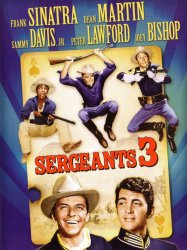
Sergeants 3 (1962)
, 1h52Directed by John Sturges
Origin USA
Genres Comedy, Action, Adventure, Western
Themes Poésie, Adaptation d'un poème
Actors Frank Sinatra, Dean Martin, Peter Lawford, Sammy Davis Jr., Joey Bishop, Ruta Lee
L'action se déroule à Medicine Bend, une bourgade sur les hauteurs montagneuses du Dakota. Attaquée par des Indiens, la personne chargée du télégraphe a le temps, avant sa mort, d'envoyer un message au fort McClelland. Le colonel Collingwood, le commandant du fort, envoie sur place une escouage dirigée par trois amis : les sergents Merry, Deal et Barrett. Un ancien esclave noir, qui souhaite s'engager dans l'U.S. Cavalry, les suit malgré l'interdiction qui lui en a été signifiée. Une fois arrivés à Medicine Bend, l'équipe ne trouve aucune trace des habitants et sont attaqués par les guerriers de Mountain Hawk.

Gunga Din (1939)
, 1h57Directed by Robert Parrish, George Stevens
Origin USA
Genres Drama, War, Comedy, Action, Adventure
Themes Poésie, Political films, Adaptation d'un poème
Actors Cary Grant, Victor McLaglen, Douglas Fairbanks, Jr., Eduardo Ciannelli, Sam Jaffe, Joan Fontaine
On the Northwest Frontier of India, circa 1880, contact has been lost with a British outpost at Tantrapur in the midst of a telegraph message. Colonel Weed (Montagu Love) dispatches a detachment of 25 British Indian Army troops to investigate, led by three sergeants of the Royal Engineers, MacChesney (Victor McLaglen), Cutter (Cary Grant), and Ballantine (Douglas Fairbanks, Jr.), long-time friends and veteran campaigners. Although they are a disciplinary headache for their colonel, they are the right men to send on a dangerous mission. Accompanying the detail are six Indian camp workers, including regimental bhisti (water carrier) Gunga Din (Sam Jaffe), who longs to throw off his lowly status and become a soldier of the Queen.
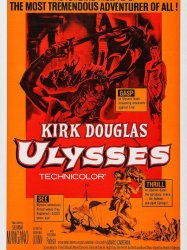
Ulysses (1954)
, 1h57Directed by Mario Bava, Mario Camerini
Origin Italie
Genres Drama, Science fiction, Fantasy, Action, Adventure, Horror, Peplum
Themes Seafaring films, Films based on mythology, Poésie, Transport films, Films based on Greco-Roman mythology, Adaptation d'un poème, Dans la Grèce mythologique, Films based on Greco-Roman mythology
Actors Kirk Douglas, Silvana Mangano, Anthony Quinn, Franco Interlenghi, Rossana Podestà, Jacques Dumesnil
The story is about Ulysses' efforts to return to his home after the end of the Trojan war, and the adventures that befell him.
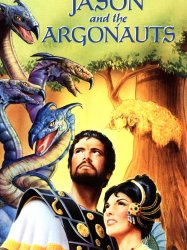
Jason and the Argonauts (1963)
, 1h45Directed by Don Chaffey
Origin United-kingdom
Genres Science fiction, Fantastic, Fantasy, Action, Adventure, Peplum
Themes Films about magic and magicians, Seafaring films, Films based on mythology, Poésie, Transport films, Films about dragons, Films based on Greco-Roman mythology, Adaptation d'un poème, Dans la Grèce mythologique, Films based on Greco-Roman mythology
Actors Todd Armstrong, Nancy Kovack, Honor Blackman, Gary Raymond, Laurence Naismith, Nigel Green
Pelias (Douglas Wilmer), misinterpreting the prophecy given to him by the god Zeus (Niall MacGinnis), usurps the throne of Thessaly by killing King Aristo and most of his family. The infant Jason is spirited out by one of Aristo's soldiers. Pelias encounters one of the king's daughters, Briseis (Davinia Taylor), seeking sanctuary in the temple of the goddess Hera (Honor Blackman) and slays her. Because the murder has profaned her temple, the angry Hera becomes Jason's protector. She, disguised as the high Priestess, warns Pelias to beware of a man wearing one sandal.
 Connection
Connection